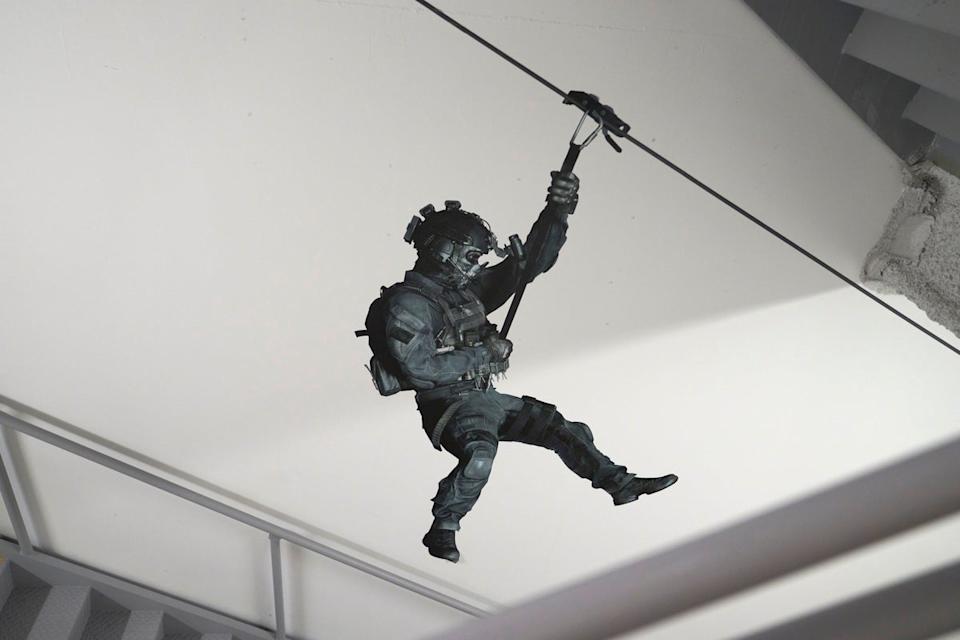Why Microsoft’s purchase of Call of Duty developer Activision is such a big deal – and why PlayStation doesn’t want it

More than a year ago, Microsoft announced a deal that – whatever happens – will change how gaming works forever. For $68.7 billion, the Xbox maker would buy Activision, which develops Call of Duty among other things.
Microsoft said that the deal would “accelerate the growth in Microsoft’s gaming business across mobile, PC, console and cloud and will provide building blocks for the metaverse”, and its chief executive Satya Nadella said it was “investing deeply in world-class content, community and the cloud to usher in a new era of gaming that puts players and creators first and makes gaming safe, inclusive and accessible to all”.
But very quickly those inclusive and positive words turned sour. Regulators began enquiries because of the scale of the deal, and Microsoft rival PlayStation objected too, saying that the damage if it went through could be existential to its console business.
Now, the fate of the deal lies in the hands of regulators in at least three countries, who will decide whether it is allowed to go ahead. On the line is not just the $70 billion that Microsoft wants to pay, but perhaps the future of gaming in general.
Why does Microsoft want to do this deal?
Buying Activision will give Microsoft ownership of many of the world’s biggest games: not just Call of Duty, but others, including mobile behemoths like Candy Crush. All of those will be part of Microsoft and can be used to boost the offering of the Xbox.
That could mean putting those games into Game Pass, for instance, to improve the offering of its game subscription service. Or it could mean making them exclusive to the Xbox, to get people to buy more of the consoles.
Microsoft has also suggested that it could be for other things, too: like improving its mobile offering, and also providing “building blocks for the metaverse”.
Why do Sony and others object?
The objection of Sony – and some regulators – is based on the fact that the deal could make Microsoft just too dominant in the gaming market. That in turn would hurt players and competitors, some have argued.
Of course, huge deals have happened in the past. But Sony argues that Activision is a special case because of Call of Duty: as the best-selling game in nine of the past ten years, and with a major multiplayer element that will help keep players coming to it, it could be enough to lure people over to different consoles.
Sony doesn’t want that for obvious reasons: it will mean people buying Xboxes rather than PlayStations, and signing up to Microsoft’s Game Pass subscription service rather than PlayStation Plus.
Regulators have suggested that domination will also help their citizens, too, by giving Microsoft a position that could be abused to force players to spend more money to get the service they already have, and limit competition.
How will all of this affect players?
Microsoft’s public statements suggest that its aim is to make games more available and in more places, including those offered by Activision. It has pointed to a range of possible good consequences for gamers, including making more games available on mobile, strengthening the offering of Game Pass, and more.
“Players everywhere love Activision Blizzard games, and we believe the creative teams have their best work in front of them,” said Phil Spencer, chief executive of Microsoft Gaming, when the deal was announced. “Together we will build a future where people can play the games they want, virtually anywhere they want.”
PlayStation doesn’t agree. It has argued that the deal will hurt players, in a variety of ways, including reducing competition between the two and forcing people to buy a new Xbox if they want games that are currently available on the PlayStation.
So far, regulators appear to be agreeing more with PlayStation’s take than with Microsoft’s. It announced in preliminary findings last month that it believes the deal could hurt gamers by stifling competition in both cloud and console gaming, harming players “who cannot afford expensive consoles” and the problems caused by “weakening the important rivalry between Xbox and PlayStation gaming consoles”.
What happens now?
Everyone involved is waiting for those regulators to make their decision. The CMA is expected to make their ruling first, and will set the tone across the world.
That decision could go a number of different ways. Regulators could approve the deal as it is, though that is unlikely; they could request that it is voided entirely, which is slightly more likely; or they could do something in between, demanding that certain restrictions are put onto the deal, which is the likeliest event.
That could include forcing Microsoft to get rid of certain bits of Activision, for instance. Or it might mean signing binding commitments to keep making games such as Call of Duty available on other consoles for a given amount of time.

 Yahoo Finance
Yahoo Finance 